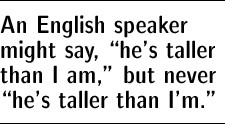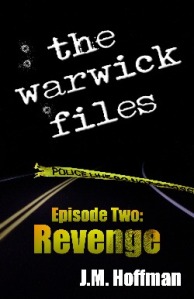Archive
Remembering Ariel Sharon: A Real-Life Hero
Ariel Sharon died today.
It was eight years ago that a stroke left the prominent Israeli leader in a coma, and about two weeks ago, while I was in Israel, that news reports circulated that Sharon’s condition had “worsened.”
In a sense, it was ludicrous. How much worse could the comatose 85-year-old’s health get?
In another sense, it didn’t even seem like news. Except to those who knew him personally, what did it matter, really, whether the man was in a permanent vegetative state or whether his kidneys and liver gave up, too? But it wasn’t just news. It was the lead story across Israel.
Ariel Sharon lived a life of controversy. Born in 1928 in the pre-Israel British Mandate of Palestine E.I., he joined the Israeli army as a paratrooper, achieved officer status, and distinguished himself militarily by, for instance, forming the elite Unit 101 of the IDF and by mounting successful if contentious operations during the 1956 and 1973 wars. For these the public dubbed him the “King of Israel” and the “Lion of God,” launching his political career.
Sharon’s military boldness was matched by his bullheaded personality, at attribute for which he was called “the Bulldozer.” Reports of military insubordination had already surfaced in the 1950s. Later, for his actions as Defense Minister during the 1982 Israeli military campaign in Lebanon, he was charged with personal responsibility for Muslim deaths at the hands of Lebanese Christians. Unlike most such accusations, this one came not from Israel’s critics but from the Israeli government itself.
Repeating his pattern of provocation, Sharon led a contingent of 1,000 Israeli Jewish police offers to the Temple Mount in September of 2000, all but ensuring a violent response from the local Muslims who considered the site the 3rd holiest place in Islam.
In 2001, Sharon became Israel’s Prime Minister, thus giving his argumentative personality a larger pulpit, such as when he enraged all of France by declaring that French Jews should leave immediately because of the rampant and unchecked antisemitism in that country.
In 2004, he made an everlasting contribution to a 3,000 year-old struggle when he led his government to a unilateral disengagement from the occupied Gaza Strip (biblical Philistia, where David slew Goliath). Sharon’s move was met with widespread disapproval. Many Palestinians accused him of refusing to negotiate, while many of the Israelis living there refused to leave peaceably.
Yet Sharon’s autobiographer David Chanoff also reports that the leader said of his own life that “I begin with the basic conviction that Jews and Arabs can live together” and that even though Israel should remain Jewish, “Arabs should … be full citizens in every sense of the word.”
By 2005, this side of Sharon had become more widely recognized. He resigned as head of the Likud party, which he himself had founded, and established a new party, which he called “Kadima” — a Hebrew word that means “forward,” and also, more colloquially, “let’s go already.” It was in this context that he was widely seen as Israel’s greatest hope for permanent peace.
And then he suffered a series of debilitating strokes that left him in a coma, that left his party without a strong leader, and that devastated the spirits of many newly-made optimists.
Flawed though he was — as real-life heros always are — Sharon was larger then life, and he wrote a chapter of a book that began 150 generations ago. Yet alongside monikers like “King of Israel,” he was also known by his humble nickname: Arik.
Perhaps this Jew born to Russian immigrants can remind us that our own lives, too — in ways we often cannot fathom — are part of the unfolding story of the Jewish people. Now there’s a new chapter waiting to be written. And each of us has been invited to contribute.
Why Hanukkah and Thanksgiving will Never Again Coincide
[You can also read a version of this on the Huffington Post.]
 Try to keep up with me on this.
Try to keep up with me on this.
I know that’s an ominous way to start, but it’s worth it.
This month, Hanukkah and Thanksgiving will overlap for a joint celebration that will never happen again. Here’s why.
Thanksgiving is the 4th Thursday in November. Hanukkah is the 25th day of the Jewish month of Kislev.
The 4th Thursday in November can range from the 22nd to the 28th. If the 29th is a Thursday, then so is the 1st, so the 29th would be the fifth Thursday, not the fourth. And if the 21st is a Thursday, then it’s only the third Thursday. On average, then, Thanksgiving falls on the 28th about every seven years. It will fall on the 28th this year, then again in 2019, 2024, 2030, and 2041, or four times in the next 28 years. (It’s not exactly every seven years because leap days throw things off a little.)
The Jewish month of Kislev can currently start as early as November 3 or as late as December 2, which means that the first day of Hanukkah can come as early as November 28 or as late as December 27.
The reason for the broad range of possible dates is that the Jewish calendar is lunar-solar. The months are based on the cycles of the moon. But the calendar changes the lengths of those months, and even how many months are in a year, to make sure that Passover always falls in the spring. This complex system — put in place by Rav Shmuel in the first half of the first millennium CE — ensures that the Jewish date and the secular date match up every 19 years. (By contrast, the Muslim calendar is purely lunar, which is why Ramadan can fall during any time of the solar year. The Christian religious calendar is almost entirely solar, but Easter falls on the first Sunday after the first full moon after the spring equinox [around March 21], a calculation that involves the moon as well as the sun.)
Because of this Jewish 19-year cycle, 19 years from now, in the year 2032, Hanukkah will again fall on November 28. But Thanksgiving in that year falls three days earlier, on the 25th.
On average, we would expect the 19-year Jewish cycle and the 7-year Thanksgiving-on-November-28 cycle to coincide about every 19×7 years, which is to say, approximately every 133 years. And they sort of do.
One-hundred and fifty-two years ago, in 1861, the first day of Hanukkah and the 4th Thursday in November were both on November 28th. But there was no Thanksgiving back then.
In 152 years from now, in 2165, Thanksgiving falls on the 28th, and you’d expect Hanukkah also to fall on the 28th, but it doesn’t.
If you you’ve been paying attention (and if you haven’t given up yet), you may have noticed that I said “currently” when I explained when Kislev can begin. Remember Shmuel, who fixed the details of our current Jewish calendar in the first place? He, like everyone else back then, though that the year was 365.25 days long. This is why we have a usual year of 365 days, but every 4th year we add a leap day in February to make 366.
But Shmuel — again, like everyone else — was off by a little more than 11 minutes. The year is not quite 365.25 days long, but, rather, closer to only 365.2425 days, or about 11 minutes shorter than 365.25 days. For a long time no one noticed those 11 minutes. For a longer time no one cared. But by the time of Pope Gregory XIII in 1582, those 11 minutes per year — or about 3 days per 400 years — had added up to about ten days.
This meant that March 21, which had once been the approximate date of the spring equinox, was now 10 days later than the spring equinox. Or, conversely, the spring equinox fell on March 11. This was a problem for the Church, because the springtime holiday of Easter was shifting further and further away from spring.
Pope Gregory fixed the problem in two ways. First, he lopped off 10 days from the calendar. For Catholics, the day after Thursday, October 4, 1582 was Friday, October 15, 1582. Secondly, he eliminated 3 leap days every four hundred years. He decreed that years divisible by 4 would still be leap years, unless they were also divisible by 100 but not by 400. So 1600 would be a leap year (divisible by 100 and by 400), but 1700 would not (divisible by 100 and not by 400). This became known as the Gregorian calendar, and it gradually spread through the Christian world.
In 1752, the British empire adopted the Gregorian calendar, making the day after Wednesday, September 2, 1752 not the 3rd but rather the 14th. (An 11th day was necessary because 1700 was not a leap year in the Gregorian calendar.)
The Jews, of course, didn’t give a damn what Pope Gregory said. They kept using the Shmuelian calendar for their calculations. The Shmuelian calendar and the Gregorian calendar have been diverging at the rate of about 11 minutes a year, or 3 days every 400 years. Furthermore, the year 2100 will be a leap year in the Shmuelian calendar (because it’s divisible by 4) but not in the Gregorian calendar (because it’s divisible by 100 but not 400). So not long after the year 2100, the Jewish calendar and the secular calendar will diverge by an additional 1 day — though the details are even a little more nuanced, because Shmuel used a simplification of the final Jewish calendar.
This is why (remember the question from several paragraphs ago?) in the year 2165, when we’d expect Thanksgiving and Hanukkah to coincide again, Hanukkah will actually be one day later.
And that is why Thanksgiving and Hanukkah will never again coincide.
Well, almost never. If the Jews don’t ever abandon the calculations based on the Shmuelian calendar, Hanukkah will keep getting later and later — moving through winter, then into spring, summer, and finally back into fall — so that tens of thousands of years from now they will again coincide. But long before then the springtime holiday of Passover will have moved deep into summer, so be on the lookout for a memo with a calendar update in the next several thousand years.
And in the meantime, don’t miss this opportunity to enjoy an exceedingly rare confluence of celebrations.
Happy Hanukkah. And Happy Thanksgiving.
A Short Torah Story
 It was raining, so we started by talking about that. As it happens, one of the kids had just come back from Colorado, recently ravaged by floods, so the conversation naturally turned to flooding. That segued into flood damage, followed by what one might save in a flood, and, from there, saving a Torah in a flood.
It was raining, so we started by talking about that. As it happens, one of the kids had just come back from Colorado, recently ravaged by floods, so the conversation naturally turned to flooding. That segued into flood damage, followed by what one might save in a flood, and, from there, saving a Torah in a flood.
It was Sunday morning, and I was teaching 7th graders.
“Would you save a Torah from drowning?” I asked the class.
“Yes,” all of the students agreed.
“Why?” I asked.
“Because,” one of the students replied, “it would do the same for me.” Tee hee.
The funny thing is that it would.
I explained why.
The Torah is one of the three parts of the Bible, the other two being the “prophets” and the “writings.” The students’ haftarah portions come from the prophets. The writings include well-known works like the Book of Esther (more commonly known as the “Megilah” and read or chanted on Purim), Psalms (such as the famous Psalm 23 that begins “The Lord is my Shepherd”), and so on.
The great Rabbis gave us two major kinds of commentary on the Bible, the first in the form of the Midrash, and the second in the form of the Talmud. It’s that second compendium that offers advice on all manner of things: when to light Shabbat candles and how to read the Torah, why some kinds of damages are like oxen but others like pits, what kind of damage an ox owner is responsible for and why only dead elephants can be used as a wall for sukkah, etc.
One passage in the Talmud section known as kiddushin addresses the obligations a parent has toward a child, including the stipulation that the parents are supposed to teach their children to swim.
Without the Torah, we wouldn’t have the Bible. Without the Bible, there’d be no Talmud. And it’s the Talmud that records the importance of knowing how to swim.
It’s a round-about result, but the Torah did save us from drowning. The student had it exactly right.
This is how a conversation about the weather and our weekend plans turned into a lesson about the centrality of Torah in our lives.
[First published in the Vassar Temple November 2013 bulletin.]
Just Because You’re Right Doesn’t Mean the Other Guy is Wrong
Sometimes the opposite of the right answer is another right answer.
It’s counter-intuitive, but it’s true. And I think it’s important.
Noble Prize-winning economist Thomas Schelling gives us a helpful example. Tying together sports and animal science the way only he can, he starts by quoting the first paragraph of a book by Leonard Koppett about baseball: “Fear.” That’s the whole paragraph, and it’s a good one. Then on the theme of fear, Schelling reminds us that dogs can actually smell fear, and their reaction to fear is aggression. This means that it makes perfect sense to be afraid of dogs. At least, it’s the experience of someone who’s afraid of dogs that there’s every reason to be afraid of them.
But the catch is that people who aren’t afraid of dogs find that it makes just as good sense not to be afraid of dogs. That is, it’s the experience of someone who’s not afraid of dogs that there’s no reason to be afraid of them.
Two people. Two different answers to the same question, both of them rational. But just because they’re both right doesn’t mean that they are both just as good.
Precisely because they are both right, we have a choice — in this case a choice between living in justified fear, or justifiably living free of fear. It seems to me that the better path is the one without fear and without dog bites.
But I can only imagine how hard it would be to convince someone who’s already been bitten a few times. In fact, if such a person and I tried to find the fearless path together without the proper preamble, the fearful person would join me, express entirely rational fear, cause the dog to get aggressive, and then the dog, seeing me as the easier target, would attack me.
The fearful person would leave vindicated (if unscathed). But my perception would be that the fearful person ruined my previously good relationship with dogs. We would never see eye to eye, and might never understand why the other one can’t grasp our own eminently sensible and correct position.
The truth is, I don’t know if dogs actually do smell fear. (Schelling’s other example is bomb diffusion officers, whose fingers tremble if they think the task is dangerous, but the task is only dangerous if their fingers tremble.) I only bring it up because there are usually lots of right ways to do something, with various combinations of freedom, constraint, trust, skepticism, praise, discouragement, encouragement, holiness, and banality.
Just for example, in an environment based on distrust, people will quickly find that they are right not to trust their fellow. But people who trust each other can be just as right to do so.
The more general point is that it might be helpful, the next time we think we know that other people are wrong, to ask if maybe all we really know is that we are right. Because if so, maybe they’re right, too.
Finally, returning to the dogs and the lessons we learn from them, a question presents itself: Which one do we want to be? The one who spreads fear or the one who spreads calm?
We get to choose.
There are Strange Things Done in Washington
There are strange things done in Washington
By the folks who forge our laws.
The Senate halls and quorum calls
Have always had their flaws.
So now and again our leadership train
Has followed a curious trail.
But today’s the day you’d be tempted to say
That the train has jumped the rail.
Now on normal days the political frays of our leaders make the news
‘Cause they can’t agree down there in D.C. on which of the points of views
That get expressed will help us best restore our fortune. And
Help us regain our world-wide fame as a free and prosperous land.
On one side they say that the only way to bring us out of our slump
Is to spend much more than we have before, to find new ways to pump
Vast new sums of government funds into every corner and niche
Of our fiscal machine — you know what I mean — that’s the way to unleash
The economic might that’s been hidden from sight since four or five years ago
When the banks were dethroned for offering loans to every Tom, Harry, and Joe.
In retrospect they perhaps should have checked, before they dolled out these funds,
If there was a way for debtors to pay the interest and principal sums
Back to the banks who have since joined the ranks of the utterly stupefied.
“We couldn’t have known when we made that loan,” is what they all have cried.
“Just relax. Get off our backs,” they say. “And we’re still annoyed
“That you bitch and moan about those loans that we made to the unemployed.”
But though it’s bizarre we are where we are and that’s the reason for
The folks in D.C. to search for a key to unlock our riches of yore.
And as I have said there’s a mainstream thread in the magical beltway cult
That thinks that more debt is our best bet for a prosperous fiscal result.
But opposing them are a group of men who mightily disagree
Their position is that we’ve had our at-bat and swung and missed for strike three.
The government can’t be the power plant that supplies the fiscal fuel
To help us reclaim our former fame as an economic Jewel.
No, they say. The only way to restore our former wealth
Is to ease the restraints on the patron saints of global fiscal health.
By that they mean the mighty machine of businesses large and small
Whose inherent greed is just what we need to bring prosperity back to all
The American folks who may have lost hope as they saw their fortunes shrink.
Though it might be true that business is who brought us to the very brink
Of financial wreck — Sure! What the heck! — Let’s give them another shot
At creating a tide upon which we all rise. That’s the other school of thought.
Now it seems to me that these folks in D.C. have spent too long at the farm.
Both theories are flawed, and that’s not all, they’re both more likely to harm
This great U.S., whose very success has always depended upon
A collective desire to climb ever higher, to forge new paths, to lead on.
But now I digress, so let me just stress that surely there’s truth on both sides
Of this mighty debate about our fate. There’s more that unites than divides.
We can all admire the way we aspire to freedom that’s guaranteed
By the very core of our national lore, by the leaders ensconced in D.C.
This explains our awe for order and law, for the forces that keep us free
To visit great parks, to enjoy the arts, to relax over afternoon tea.
‘Tis been said before, but I’ll say it once more: Anarchy precedes every fall.
But nonetheless, it’s true, I guess, that it beats no government at all.
There are strange things done in Washington
By the folks who forge our laws.
The Senate halls and quorum calls
Have always had their flaws.
So now and again our leadership train
Has followed a curious trail.
But today’s the day you’d be tempted to say
That the train has jumped the rail.
Jerusalem through CNN’s Eyes of Bias, Prejudice, and Malice
I wasn’t going to say anything, but when CNN started featuring their misguided article about Israel, the West Bank, and Gaza, I felt I had to speak up, because the piece reads like a deliberate attack in the guise of journalism.
The network has a series called “Parts Unknown.” To promote the first episode of the second season, CNN has posted 10 things to know before visiting Israel, the West Bank and Gaza by Matthew Teller, writing “for CNN.”Everyone has a bias. And hard facts will always be open to soft interpretation in anything as complex as a modern country, particularly one continuing an evolving 3,000-year-old culture at the crossroads of three major world faiths. I’ve written about Jerusalem, for example, and presumably some people didn’t like what I wrote.
 So I’m not surprised that CNN’s author highlights the connection between the Quran and the Muslim Al-aqsa mosque even though he omits the Bible’s many references to the Jewish Temple. Nor am I surprised by the author’s claim that the Israeli security barrier was “built to keep Palestinians from moving freely.” I don’t believe it was, and I believe that the author’s spiteful words hinder serious conversation about the unintended consequences of battling terrorism. But still, we might attribute these shortcomings to editorial voice on his part.
So I’m not surprised that CNN’s author highlights the connection between the Quran and the Muslim Al-aqsa mosque even though he omits the Bible’s many references to the Jewish Temple. Nor am I surprised by the author’s claim that the Israeli security barrier was “built to keep Palestinians from moving freely.” I don’t believe it was, and I believe that the author’s spiteful words hinder serious conversation about the unintended consequences of battling terrorism. But still, we might attribute these shortcomings to editorial voice on his part.
The factual mistakes are more troubling, like the author’s indication that the Western Wall was part of the Temple (it was and is the western retaining wall that supports the Temple Mount upon which the Temple was built), or his mistaken explanation that Judaism is simply a religion (contradicting, for example, the eminent Rabbi Ammi Hirsch). These are common mistakes, though, noteworthy only because CNN is promulgating the misinformation this time.
The real problem with these “10 things” is the ninth one, where the author apparently confuses the Palestine of antiquity with the modern Palestinians. “When you visit Israel,” he writes as a caption, “you’re also visiting biblical Palestine.” “Palestine” is one ancient name for the area that includes Jerusalem, so “biblical Palestine” is almost right. But Teller then takes the shocking step of using modern “Palestinian culture and the Arabic language” as an example of Israel’s biblical culture.
There is lots of legitimate room for disagreement when it comes to the Middle East. But no one of repute believes that the ancient, Jewish, Israelite inhabitants of ancient Palestine are the same as the modern Christian and Muslim Arabs who call themselves Palestinians. They just happen to have the same name in English. There is no reasonable justification or excuse for equating the two. Yet that’s what CNN does here.
There’s an old adage that one should never attribute something to malice if it can be explained by ignorance, so along with any other reader who cares about the Middle East, I have to ask: is CNN’s gross bias here born of prejudice or ignorance?
[In the interest of open debate, I have offered an opportunity to respond to the author, Matthew Teller, and to Anthony Bourdain, whose name appears in connection with the article.]
Chasing Mediocrity
I think that mediocrity is easy to measure while excellence is not, which creates a dilemma in the current era of objective assessment: when we insist on objective metrics of success — grades (for children), evaluations (for teachers), quarterly profits (for companies), recognized rules of writing (for authors), etc. — we motivate people to chase mediocrity.
For example, high schools in this country have been on a steady path toward more objective standards (starting with “No Child Left Behind”), while university professors, once they achieve tenure, are essentially accountable to no one. As a result, I believe, U.S. high schools fare terribly compared to the rest of the world, while our universities are arguably second to none.
Indeed, Forbes reports that “70% of engineers with PhD’s who graduate from U.S. universities are foreign-born.” These engineers come to the U.S. only for the education system that has no objective metrics of success, and, similarly, U.S. high-school students are unprepared for graduate work after their educational path based on test scores.
In the completely different realm of fiction, best-selling author Lee Child critisizes the writing industry for focusing on objective criteria of good writing, starting with the most well-known rule: “show don’t tell.” Writers follow the rule, Child says, because they’ve been “beaten down.” They are chasing mediocrity.
The now-defunct Bell Labs had a well funded department of researchers whose only job was to tinker; they were not required to demonstrate that they were earning their salaries. The department developed the transistor, the solar cell, the laser, and the first communications satellite, among many other innovations. Freed of objective metrics of success, the researchers were able to thrive.
The highly coveted MacArthur “genius” grants, officially the “MacArthur Fellowship” stipends, come with no strings attached and make no reporting obligations on the fellows, because, the foundation believes, the fellows “are in the best position to decide how to allocate their time and resources.” They don’t want to push their fellows toward mediocrity.
The catch is that I think there’s a place for mediocrity, because sometimes the alternative is ineptitude. Or to look at it differently, “mediocrity” is sometimes “competence.”
I’d rather have a mediocre airplane pilot than an inept one, for instance, so I’m glad the FAA requires (14 CFR 121) pilots to undergo “check rides” to demonstrate their continuing competence.
So we seem to have two approaches: an objective-assessment model that pushes people from ineptitude up to competence, but also pushes people down from excellence to mediocrity; and a more flexible model that allows people to excel but also to fail.
The trick, I suspect, is knowing when to apply each one.
Publication of “The Warwick Files: Revenge”
In “Revenge,” a woman breaks off an affair with the governor, pitting Police Chief Kai Goodman against the State Police.
Like the first story, “Revenge” features Coyote “Kai” Goodman, whose past is so secret that even his cover story is classified. The setting is Warwick, NY, where, according to the official count, there are no spies.
The story is available in paperback for $3.95, and, like most short stories, for only $0.99 on Kindle. Or start reading the story for no-charge on-line.
To celebrate this release, the Kindle edition of “Checkpoint” — the first story in the series — is a free download, but only today.
I hope you enjoy reading “Revenge” it as much as I enjoyed writing it.
To Blindly Lead The Blind: Why Only Some Grammar Rules Are Breakable
[You can also read this on the Huffington Post.]
A misguided debate is raging over English grammar. It began when authors Patricia O’Conner and Steward Kellerman claimed in the Smithsonian that “most of what you know about grammar is wrong.” Then the Huffington Post picked it up, and after that The Guardian.
The controversy is illustrated by a disagreement over “split infinitives”: is it, or is it not, okay to say “to boldly go…,” using the word “boldly” to split the infinitive “to go”?
Having written a column on (Hebrew) grammar for the International Jerusalem Post and with a PhD in linguistics to my name, I feel like I have a horse in this race. And as someone who likes talking to my friends, I have another horse in the race. As an author and lover of words, I have a third horse with my name on it.
 And this is my point: There are three distinct ways to look at grammar.
And this is my point: There are three distinct ways to look at grammar.
Who Died And Made You King?
The first, and most traditional way, is what we linguists call “prescriptive grammar,” or, more snarkily, the “who died and made you king” approach. And it’s essentially a social policy, not unlike wearing white only after Labor Day. (Or before. Or Memorial Day. You know what I mean.) People in power make up rules and expect other people to follow them: Don’t end a sentence with a preposition. Don’t split an infinitive. And so on.
But Ms. O’Conner and Mr. Kellerman are misleading when they say that these are “phony rules.” They’re just like spelling: arbitrary agreements enforced by arbitrary language monarchs. There’s no good reason that the possessive “Michael’s” should have an apostrophe when the equally possessive “its” does not, for instance, but that’s the way it goes. The kings told us so. And the same is true of properly positioning prepositions and not inserting items into infinitives.
(Incidentally, the “with” in “put up with” is a particle, not a preposition, in spite of Churchill’s probably apocryphal stance that “ending a sentence with a preposition is something up with which I shall not put.” And Ms. O’Conner and Mr. Kellerman are simply wrong when they say that “to” isn’t part of the infinitive in English.)
But Everyone’s Doing It!
The second way to look is grammar is both more interesting and less appreciated. People naturally follow innate rules when they speak. Unlike the “who died and made you king” sort, which, as we’ve seen, are a social policy, these innate rules are akin to anthropology. People follow these rules without even knowing that they’re doing so. Technically part of “descriptive linguistics,” we might dub these rules “but everyone’s doing it.”
 For example, in English, “I am” and “I’m” mean the same thing: “I am going to the movies” is the same as “I’m going to the movies.” But even so, an English speaker might say, “he’s taller than I am,” but never “he’s taller than I’m.” Hundreds of millions of Americans, Brits, and more all agree on this basic fact, in spite of mostly never having thought about it before. That’s the magic of the “but everyone’s doing it” camp: it sheds light on human behavior.
For example, in English, “I am” and “I’m” mean the same thing: “I am going to the movies” is the same as “I’m going to the movies.” But even so, an English speaker might say, “he’s taller than I am,” but never “he’s taller than I’m.” Hundreds of millions of Americans, Brits, and more all agree on this basic fact, in spite of mostly never having thought about it before. That’s the magic of the “but everyone’s doing it” camp: it sheds light on human behavior.
Similarly, we’re told to say, “it is I,” not “it’s me.” But descriptively that’s nonsense. If four people who knock on a door in America are asked “who is it?” they don’t answer “it’s only we.”
As a final example, English speakers innately know that profanity can be used to split a word right in the middle, but only in the correct place. This is why Laura San Giacomo’s foul-mouthed character in “Pretty Woman” can respond to a question about a name with “CindeFuckingRella,” and why a frustrated traveler might lament getting stuck in “MissisGodDamnSippi.” We know that this curious pattern is governed by rules because only some internal word slots allow expletives: speakers don’t say “CinFuckingDerella” or “MississipGodDamnPi.”
So when Ms. O’Conner and Mr. Kellerman write that a rule is “phony,” what they mean is that it is not descriptive. And they’re right that many a non-descriptive rule was promulgated in honor of the regent we call Latin. But even artificial rules are rules, and, like spelling, they have their place.
The Art of Writing
If the first kind of grammar (“who died and made you king”) is a social policy, and the second (“but everyone’s doing it”) is observational science, the third is art: what’s the best way to put words together to achieve a certain goal?
If you want clarity, then, for example, “writing carefully, dangling participles must be avoided,” to quote William Safire’s 1979 column in The New York Times. (The dangling particles aren’t writing carefully. The writer is.) An even clearer example is replacing the awkward “sleeping soundly, the lion ate the campers” with the better “the lion ate the sleeping campers.” The reason to avoid dangling particles, in other words, is that they’re not clear.
Passives, too, generally don’t make for good prose. So instead of “the campers were eaten by the lion,” a good author will generally prefer “the lion ate the campers.”
And I’m reminded of a sign I saw in the restroom in Target: “All employees must wash your hands.”
But these rules, some of which are prescriptive, are only aesthetic guidelines. Really good authors know when to break them. This is why the second sentence of Lee Child’s run-away best seller The Killing Floor can be the three-word fragment, “At twelve o’clock.” And the second sentence of John Grisham’s The Firm can be the ungrammatical, “He had the brains, the ambition, the good looks.” (This is technically called “asyndeton.” Mr. Grisham’s second sentence is asyndetic.) A high-school student would lose points on an essay for writing either of these sentences, but Mr. Child and Mr. Grisham use them to create best sellers.
Deviate too far from the “who died and made you king” rules, and your writing will look ignorant and amateurish. Deviate from the descriptive rules and you’re no longer writing English. But deviate from the aesthetic rules, and you end up either with a mess or with a masterpiece.
Art is like that.
My God, The Soul That You Have Given Me is a Pure One
“My God, the soul that you have given me is a pure one.”
That line appears in the daily morning service, as if — as Debbie Friedman used to teach — reminding us that each day we start anew, untainted by whatever we may have done the day before.
Debbie used to add that if our religious schools could teach the students that they start each day with a pure soul, we’d be ahead of the game even if we taught nothing else. I tend to agree.
 I have frequently asked teenage students if they think that they have a pure soul, and the most common answer saddens me: “I used to,” they say.
I have frequently asked teenage students if they think that they have a pure soul, and the most common answer saddens me: “I used to,” they say.
Yes, even by high school, sometimes earlier, the students think they have done something so awful that they have irrevocably destroyed who they used to be.
Certainly part of the problem is the entirely un-Jewish approach that equates sex with impurity. (I remember teaching a high-school class about the Kabbalistic poem “Lecha Dodi” some years ago, and pointing out that the word we usually translate as “my beloved” is, in fact, “my lover.” A surprised student asked, “so the prayer is dirty?” “It’s sexual,” I told her, “not dirty.”)
But I think the problem goes deeper.
I think that even the most forgiving among us are often relentlessly unforgiving of ourselves. We let other people have a bad day and don’t give ourselves the same permission. We accept lapses in judgment by others but not ourselves. We forget about callous remarks aimed our way while we let our own misspoken words haunt us.
We want to take back what we have done or said, and when we cannot, we feel we have sullied our soul.
Some mistakes are so monumental that we read about them in the newspaper and hear about them in courts of law. But most of us let far more mundane errors haunt us: an ill-advised comment, a road not taken, or a choice poorly chosen.
I think there’s a certain nobility to trying to live a blameless life, but an equally certain futility. We want to ask, “can I be perfect?” But the better question seems to be, “how do I react when I screw up?” Our morning prayer addresses that second question.
The prayer’s answer is that no matter what, we are still the very embodiment of holy purity. There is nothing we can do, say, or believe that can destroy the inner beauty of the human soul.
I want to be clear. I don’t know what a soul is, and I’m not sure I believe in a God that can give me a pure one. But I don’t think we should let the lofty language of the liturgy hide an important message for our daily life.
I write this in the first few days of 2013, when many people are engaging with New Year’s Resolutions: I won’t do… I will do… I’ll never again… I promise not to… And so forth.
But I think most of us have unfinished business from last year, last month, and even yesterday.
Maybe an appropriate resolution for moving forward is to start each day by reminding ourselves that the soul you have given me, my God, is a pure one.
[Reprinted from the Vassar Temple February, 2013 bulletin.]





